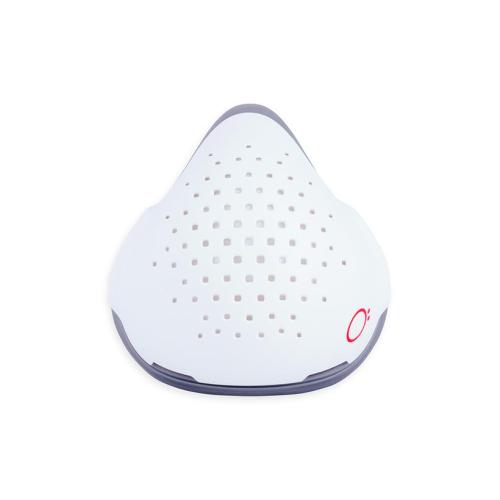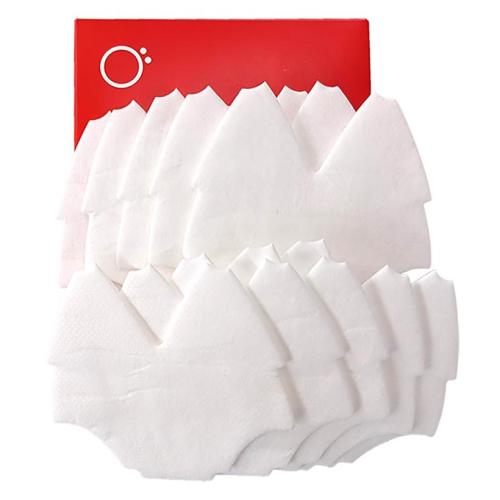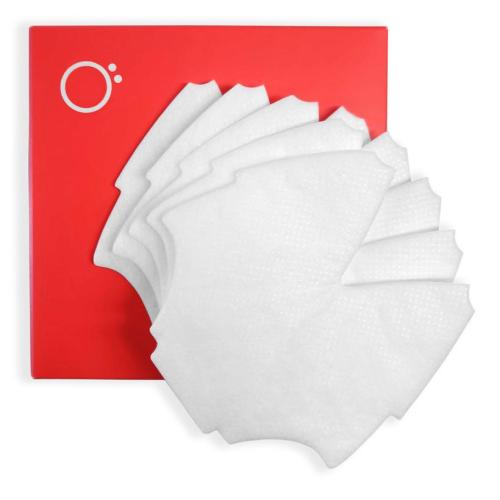3 Reasons to Consider Wearing a Respirator, According to an MD
"Respirators are designed to protect the person wearing them by forcing inhaled air through a filter," says Peter Maric, chief medical officer at O2 Industries. "Masks are still very important for infection control, but they do not offer the wearer the same level of protection as a respirator due to the lack of an air tight seal to the face, and depending on the type of material they are made from, they may also not filter as effectively as well."
If you're sold on opting for a respirator, the O2 Curve Respirator, checks off both boxes: It fits snugly with a silicone seal while still offering plenty of space to breathe, and protects wearers against airborne particles with a built-in filtration system.
Here's how it works: "The O2 Curve uses a highly efficient, yet breathable triboelectric-charged filtration system, which consists of multiple layers of different filter media that work both mechanically and electrostatically," Dr. Maric says. That's a fancy way of saying that the filtration system is powered by electricity derived from contact with certain materials (bonus: that means you don't have to charge it).
Respirator benefits don't just apply to filtering infectious airborne droplets; the device can also help filter air impacted by wildfires, environmental pollutants, allergens, and mold, says Dr. Maric.
"O2 believes that everyone deserves clean air," he says. "In 2017, when our very first products rolled off our assembly line, rather than sell them, we donated the entire run to local communities impacted by devastating forest fires that year."
But besides the obvious (doesn't everyone want to breathe cleaner air?), there are plenty of other respirator benefits. To learn more, keep on reading.
Keep scrolling for three top respirator benefits, according to Dr. Maric.
They do double duty
Respirators don't just clean the air you're breathing, but potentially the air the people around you are breathing, too. "They provide a higher level of protection from airborne particles—not just for the person wearing it, but also for others, depending on how they are configured," Dr. Maric says.
According to Dr. Maric, the reusable respirators' edges can help create an air-tight seal (keeping out less-than-clean air), and because they're made of soft, pliable silicone, they are also durable, easy to clean, and can be less irritating on the skin. "With a more comfortable fit, this allows you to wear it on your face for longer periods of time," he says. File that away for the next-time you want to go on a long run.
SHOP NOW
They save you money
While you don't have to replace a disposable mask every time you wear it, you can't keep it around forever (RIP to the makeup-stained ones in your trash). Not so with a respirator. "They are more economical over time," Dr. Maric says. "Replacement filters are less expensive over time, and do not typically need to be changed as often."
Speaking of, how often you need to replace the filter depends on what you're wearing it for. If you're protecting against allergens or air pollution, you can change it roughly every two weeks, Dr. Maric says. But if you're wearing it in a place with severely poor air quality (like near a wildfire) or the filter noticeably changes colors, you'll need to replace it sooner.
"When intended to protect against infectious droplets, filters should be changed when they become contaminated or visibly soiled," Dr. Maric says. If someone coughs or sneezes in your face, first be thankful that you were wearing a respirator, then make sure to clean it properly and consider swapping out the filter.
They're more sustainable
Besides helping you personally breathe cleaner air, respirators are nicer to the planet than disposable masks. "Since only the filters need to be changed, and less often than disposable masks, the environmental impact is reduced," Dr. Maric says. Now that's an overachiever win for sure.
Paid Content for O2 Industries
Loading More Posts...


